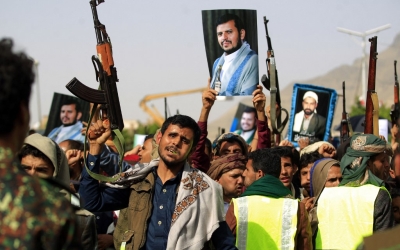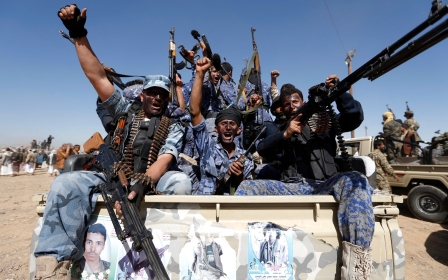Yemen: Acute malnutrition spreading in government-controlled areas
Acute malnutrition is spreading across government-controlled areas of Yemen, a new UN report has warned.
The Integrated Food Security Phase Classification (IPC) Technical Group in Yemen said malnutrition had worsened as a result of the combined effect of the spread of diseases such as cholera and measles, a shortage of nutritious food and a lack of drinking water.
Wider economic decline across the war-ravaged country, split between areas loyal to the internationally recognised government and Ansar Allah (better known as the Houthis), has also contributed to the food crisis.
According to the analysis, the number of children under the age of five suffering acute malnutrition rose by 34 percent compared to the previous year across government-controlled areas, affecting over 600,000 children, including 120,000 children who are severely malnourished.
"Extremely critical" acute malnutrition was reported for the first time in the southern Hodeidah lowlands, including the Al Khawkhah and Hays districts on the Red Sea coast.
New MEE newsletter: Jerusalem Dispatch
Sign up to get the latest insights and analysis on Israel-Palestine, alongside Turkey Unpacked and other MEE newsletters
The IPC said all 117 districts in government-controlled areas covered in the survey were projected to experience "serious" levels of acute malnutrition or worse, while the Mawza district in Taiz was also projected to slip into the "extremely critical" level.
"The report confirms an alarming trend of acute malnutrition for children in southern Yemen. To protect the most vulnerable women, girls and boys, an investment in and scale-up of prevention and treatment efforts are more critical than ever," said Unicef's representative to Yemen, Peter Hawkins, in a statement.
"We will continue to do everything we can including building on the existing multisectoral response to fight the life-threatening forms of malnutrition so that children can survive and grow to their full potential.”
The government of Yemen, backed by a Saudi-led coalition, has been at war with the Houthis since 2015. The Iran-aligned rebel movement controls the capital Sanaa and most of the country.
The fighting has seen much of the country plunged into ruin with hundreds of thousands dead and widespread destruction of infrastructure and food shortages.
In December, the two sides in Yemen committed to a UN-led roadmap to end the war, agreeing to work towards "the resumption of an inclusive political process".
Houthi attacks on ships in the Red Sea, in solidarity with the Palestinians of Gaza, threw the future of the roadmap into doubt, despite Saudi Arabia's relatively muted response to the attacks.
"WFP is currently forced to provide smaller-sized rations and these findings should be a wakeup call that lives are at stake," said Pierre Honnorat, representative and country director for the World Food Programme (WFP) in Yemen.
"It is critical to step up support to the most vulnerable who could sink deeper into food insecurity and malnutrition if current low levels of humanitarian funding persist."
Middle East Eye delivers independent and unrivalled coverage and analysis of the Middle East, North Africa and beyond. To learn more about republishing this content and the associated fees, please fill out this form. More about MEE can be found here.





